[00:00:00] ANNE BOGEL: Hey readers, I'm Anne Bogel and this is What Should I Read Next?. Welcome to the show that's dedicated to answering the question that plagues every reader, what should I read next? We don't get bossy on this show. What we will do here is give you the information you need to choose your next read.
Today I'm speaking with a beloved contemporary author. If that's the type of bookish conversation you really love, I'd like to invite you to join us in the Modern Mrs. Darcy Book Club. This is a vibrant community space where we enjoy regular live author talks, classes like our recent Greek mythology for readers, our seasonal book previews — I'm working on Spring Book Preview in January right now — and special events like our upcoming team's best books of the year. Always popular, I think you can understand why.
[00:01:04] This month we're reading short stories which is a great place to jump in. Even if you're joining us mid-month or if this month is jam-packed for you with other events and commitments, you won't feel like you need to read a whole book to participate. Sign up or purchase a gift membership at modernmrsdarcy.com slash club.
Today's guest is an author many of you know by name, by her work, by reputation. Her books are beloved worldwide and I've recommended three of them to readers and three different What Should I Read Next? episodes.
Joining me today is Elif Shafak, whose latest title, There Are Rivers in the Sky, was one of my 2024 Summer Reading Guide picks and I'm so excited to hear more about its origins today.
Elif has always struck me as a hugely ambitious storyteller. Her works are so particular, set very much in a specific time and place, focusing on one or sometimes a handful of individuals, yet they also feel so inclusive and I want to hear how she does that.
[00:02:04] Across her body of work, Elif's stories explore universal themes like home and belonging, exile and displacement, things we can talk about for hours. She also leverages her Turkish heritage and accesses storytelling traditions that are sometimes unfamiliar to Western readers, and for good reason that we'll hear about today.
She's one of my favorite writers working right now, in large part because she attempts things no other writer would think of. She makes big bets and they keep paying off. We will definitely talk about that. And we'll also touch on the mythologies and metaphors that make her books so engrossing. Plus, she is sharing a handful of her favorite reads from multiple genres.
Let's get to it.
Elif, welcome to the show.
ELIF SHAFAK: Wonderful to join you. Thank you.
ANNE: Ah, this is such a treat for me. I've been such a fan of your work for a long time and I'm so excited that we get to have this conversation, specifically about your new book, There Are Rivers in the Sky, out in the U.S. the end of August 2024.
[00:03:05] And I'm not sure if you know this, but every year we make a big deal of doing a Summer Reading Guide for my blog and book club, Modern Mrs. Darcy. This was one of the books that I read and loved and included in the Summer Reading Guide.
When I told our readers about your book, it was the last one chronologically to appear in the guide, which I said felt so perfect because it's the wonderful kind of storytelling that you can just really get lost in in the summertime, which for me is a period of expansiveness and possibility and just being able to relax and sink into a good story. And also, it is so smart and deep and has themes that you could talk about over the course of an entire college semester, leading us into the big literary fiction season of fall.
So some of our readers have already heard me talk about this book, but now we get the pleasure of hearing you talk about the work. And I'm so excited to do that today.
[00:04:02] ELIF: Oh, I'm so, so grateful, you know, for your words. I was very excited to learn that you had chosen my novel. And I'm really, really excited that we're talking right now.
I find these conversations so inspiring, you know? I think we're living in a very fractured and divided world and it's really important to me that we connect beyond borders through our shared love of stories. So thank you for this.
ANNE: Yes, and thank you for the kind words. Something I love about reading is it brings together people who are so different in age and background and experience, thanks to the internet and physical location, and yet we're united by the shared love of a good story.
When I shared this book for the Summer Reading Guide — every year we do, we do a print version, but we also do an unboxing where I get to share why I loved each book and why I chose it for the guide — I said that you are my one of my favorite writers working today in large part, because you take some audacious leaps in your work. Though I'm wondering, do they seem audacious to you? But you've always struck me as a hugely ambitious storyteller who does things that just make me think, how did she come up with that?
[00:05:21] Like you've had a story narrated in part by a tree, a story that unfolds in just over 10 minutes after the protagonist's heart stops beating. You have a story in which a curse strikes all the men in the family dead at a young age. I'm so curious to hear how you think about your work. I could say more, but if you can run with that, I'm so curious to hear what comes to mind for you.
ELIF: This is wonderful. I really, really appreciate that we're talking about this. I think the way I see it, for me, literature is not necessarily autobiographical. Of course, whatever we write, there will always be echoes from our own personalities, inner voices, and our life stories. But what I am much more interested in is the transcendental nature of literature. Maybe it's because of the way I started writing.
[00:06:19] I began writing fiction at an early age, not because I was planning to become a novelist. I didn't know such a thing was possible. There were no such role models around me. Basically, I started because I thought life was very boring. I was an only child raised by a single mum. At the time in Turkey this was quite unusual.
For a while, I was raised by a grandmother who was a bit more traditional. The neighborhood I found myself in was quite patriarchal, inward-looking, very conservative. It was books that showed me there were different possibilities in life, different worlds.
So I think I love journeying into other existences, other possibilities. That's how I approach literature. I am a curious reader. I love reading across disciplines. I love interdisciplinary conversations. It makes me sad when we compartmentalize knowledge.
[00:07:24] So let's read anything and everything that speaks to us in that moment in time. It could be political philosophy, poetry, definitely. Let's also read cookbooks, graphic novels, definitely fiction, because what fiction does, nothing else can do in the same way.
But what I'm trying to say is, I don't believe in that duality, you know, highbrow literature versus lowbrow literature. Who even makes those distinctions? But let's keep reading. Let's keep learning. It's a journey.
So I think I want to make my curiosity my guide, if it makes sense. And I see literature as something more transcendental, more liquid, more water-like, and I want to follow its flow.
ANNE: Ooh, more water-like. Also, I know that we'll talk more about curiosity and how I imagine it leads you to explore certain themes in your work. But first, you mentioned water. I was just saying that so many of your premises are wild to me. In this specific story, you trace the journey of a single drop of water across centuries, across continents, and as it visits the lives of three unique and fascinating individuals. Would you say more about how you conceived of this story?
[00:08:48] ELIF: Yes, I think I see this novel as a love letter to water. And I wondered, as a storyteller, if I could build an entire novel upon something as seemingly insignificant and small as a drop of water. Can I build an entire story on this tiny little orb? Perhaps it's a question that William Blake might have raised, you know, how do you see the universe in a grain of sand? Maybe it's a little bit more mystical in that sense.
But all I'm trying to say is, even though the canvas of this novel seems to be quite broad and layered, everything began with that tiny little idea, that very small droplet. And this is the story of three characters who seem to be very, very different at first glance, but are connected in a surprising way.
And then two rivers, one in the West and one in the East, the River Thames and the River Tigris or Tigris in the Middle East. And then one ancient poem, which is the Epic of Gilgamesh. So three, two, one, and everything is connected via this raindrop that travels beyond geography and time.
[00:10:08] If I may add this, today when we talk about climate crisis, I think we're primarily talking about freshwater crisis. And it's very easy to forget this because obviously sea levels are rising. Particularly here in Europe, we look around, there are so many flash floods, it feels like there's an abundance of water. And it's easy to forget that actually what we're going through is a scarcity of water.
But for those of us coming from the Middle East, this is not some theoretical, abstract discussion. It's an acute reality. Of the most 10 water-stressed nations in the world, seven are in the Middle East and in North Africa. So basically our rivers are dying. And you see the consequences of this every day.
Now, women are water carriers almost all around the world. This is the case. And when there's no water nearby, the distance that a young woman has to walk to fetch water increases, unfortunately increasing the possibility for gender violence.
[00:11:11] All I'm trying to say is they seem to be separate issues like water scarcity, gender violence, or racial inequality, regional inequality, and so on but actually, everything is connected. And water is a great reminder of how interconnected we are as human beings.
ANNE: It's so interesting that you say that water is a great reminder, because one of the quotes from your book that I kept coming back to as I was reading and keep thinking of now is that "water remembers". It remembers what it's seen, it remembers the past, but it is humans who forget.
ELIF: And it's so true, isn't it? We have a way of thinking that history moves in a linear arc. We want to believe that the arc of history bends towards justice and tomorrow is going to be more progressive and developed than yesterday. So we tend to think of history as a linear flow, but there's no such guarantee.
[00:12:14] I think coming from a country like Turkey, I can see that sometimes countries can go backwards. Sometimes generations can make the same mistakes that their great-grandparents had already made. So perhaps, you know, when you follow the story of nature, of a river, a tree, a stone, just a drop, it reminds us that there's no such thing as linear, progressive history, not necessarily.
If I may give you an example, I live in London. I'm an immigrant in the UK. I'm also an immigrant in the English language. I have made a home in this country. And when I research the history of the River Thames, this is a zombie river. You know, the beautiful Thames is a zombie in the sense that not that long ago it was declared biologically dead because of the way we human beings mistreated the river. You know, it was so dirty, so filthy. No species could live in this river.
[00:13:15] But the river managed to renew itself, clean itself, and today it is home to more than hundreds and hundreds of biospecies. And yet, as we are recording this interview, in the name of money, in the name of greed, and profit, water companies in the UK are now once again pumping sewage into our rivers.
So when you follow the history of the Thames, it doesn't feel like there's a linear, progressive history. It feels more like circles within circles. And sometimes we do go backwards.
ANNE: When you speak of the cyclical nature of water, I'm thinking of the journey of that single raindrop. I really appreciated the timeline included in the book that shows us how in 630 BCE in Nineveh, we see this raindrop fall and land in King Ashurbanipal's hair. And then we see it seep into the groundwater and stay there for 1,500 years and return to the surface via a spring. And hundreds of years later fall is a raindrop into one of your character's hair. It keeps going. I love that as a metaphor in this story.
[00:14:23] ELIF: I really appreciate that you enjoy that. I think we tend to believe that these are different bodies of water, like the Mississippi or the Ganges or the Euphrates or the River Seine. But actually as humanity, we haven't discovered new sources of water throughout history.
And it's always the same droplets that have been circulating again and again. So it's the same water that I might be drinking right now. It's the same water that we might have shed as tears just yesterday. Definitely the same water that we're carrying inside our bodies.
I think to remember how connected we are as human beings beyond borders, but also how connected we are with nature. We're not above nature. We're not superior to nature. We're just a very small part of a very delicate ecosystem to remember that. I think perhaps we should look no further than the journey of a single drop of water through time.
[00:15:26] ANNE: You mentioned that There Are Rivers contains three characters, two rivers, one ancient poem. We've heard some about the water. Would you tell us about the three specific characters that this drop of water connects in the story?
ELIF: So my characters are related to each other like atoms in a water molecule like the H2O. The O at the center, my oxygen atom, is a young man called King Arthur of the Sewers and the Slums. And there's a reason why he's given this rather unusual name.
We're talking about Victorian England. He's born into severe poverty on the banks of the River Thames at the time, and he has been given no proper support in life, no proper education. I think had he been alive today, my character, I think we would have recognized the beauty of his mind, the neurodivergence of his brain, and respected that. But at the time, of course, he gets no such recognition.
[00:16:32] I need to tell you that this fictional character is loosely based on an actual historical person who really, really existed. His name was George Smith. We don't know much about his upbringing, not much about his childhood, so all of that is imaginary.
But I did read a lot about him, and I found it mesmerizing that this boy, without any proper education, he comes to the British Museum at the time, and he sees these shattered, broken clay tablets, ancient, thousands of years old, brought over from the Middle East.
At the time, almost no one can read them to such an extent that they call the cuneiform tablets chicken scratches, and he, sheerly with the power of his visual memory, starts to piece them together. In this way, he manages to read the tablets one by one, until one day he comes across something very, very unusual. It's a poem, an old poem, the oldest piece of literature known in human history, and that's the Epic of Gilgamesh. So he finds himself at the center of a huge debate between religion and science, especially when he discovers the flood tablet of the Epic of Gilgamesh.
[00:17:53] And if I may quickly add this, today he's buried, the actual George Smith is buried between Turkey and Syria in a forgotten graveyard. As a storyteller, I wanted to honor his story. Maybe it's a strange thing for a novelist to say this, but I really fell in love with this character, and I wanted more people to know about him.
ANNE: How did you first cross paths with George Smith?
ELIF: It was Walter that brought me to the Epic of Gilgamesh, and the Epic of Gilgamesh brought me to George Smith. I think we also need to pay more attention to the Epic itself. You know, when we talk about the Middle East, we tend to forget that this is an incredibly diverse region, it always was. And it was once upon a time home to the wealthiest empires, incredibly complicated irrigation systems, and libraries, like the Library of Ashurbanipal. It's also an area, a region that has experienced climate destruction in so many ways.
[00:18:57] I think the Epic of Gilgamesh is very relevant to our times. It's about our fear of death, our desire to prolong youth. It's about journeys, friendship, but it's also about failure, the dangers of power, tyranny. By the time Gilgamesh returns, he's a changed person. He hasn't achieved anything, but he has changed. He's a kinder person. It's about the possibility for change.
For me, what's very interesting is, imagine since then so many empires have come and gone, mighty kings have perished, even massive architectural structures have crumbled. But the very fact that a poem made of words and made of breath has survived thousands and thousands of years, and here we are talking about it, I think it also shows us the resilience of literature.
[00:19:56] ANNE: I love that. Made of words and made of breath, which is so interesting and fitting because the Epic of Gilgamesh arises out of the oral tradition, as I understand it. And in There Are Rivers we see you pulling heavily from both the written and oral traditions. Though I imagine for many of our listeners, the written tradition is vastly more familiar. I'm wondering, what do you wish your readers understood about the oral tradition of such poems?
ELIF: This is such an important subject for me. I always wish to the best of my ability, you know, for my work, for my writing to be a bridge builder between cultures and communities. I would also love my writing to bridge written and oral cultures. I think oral culture in general is usually either belittled or underestimated. I've heard people say it's the domain of ignorant housewives and such terrible descriptions being used. But coming from a country like Turkey, I have seen that often what written history conveniently forgets, oral culture remembers.
[00:21:13] For instance, most of the history that I learned at school in Turkey was his story, by which I mean the stories of a few men in positions of power and privilege, like sultans and Shaykh al-Islam, you know, the men at the head of the religious hierarchy and so on.
But the moment you start asking, what was the Ottoman Empire or life in the Ottoman Empire like for an Armenian silversmith, or a Jewish miller, or an Arab peasant, a Kurdish farmer, a Greek sailor? You know, the moment you start asking questions about minorities at the time, there's a huge silence. And then the moment you start saying, what about women, the stories of women, you know, huge silence.
So, I think writers need to be a bit like literary and cultural archaeologists. We need to dig deep down through layers of stories, but also through layers of silences. In order to understand those untold stories and silences better, we need to be connected to oral culture, because sometimes what history books have forgotten, grandmothers remember. And within that culture, there are so many pockets of wisdom.
[00:22:32] I pay a lot of attention to ballads, songs, folk tales, riddles, legends. For me, it is important to remain connected to that world. In a nutshell, I think I feel very attached to the Western canon, particularly of the novel. But equally, I feel attached to the stories of the Balkans, Asia Minor, the Levant, the Middle East. And sometimes those storytelling traditions are very different. They're more like circles within circles. And I would love my writing to bring together those different traditions.
ANNE: I'm hearing you say that what written tradition excludes, neglects, forgets, oral tradition remembers. And you said, right? But that's blowing my mind, actually.
ELIF: It's so important because I think literature has to pay more attention to the periphery, to those untold stories, the forgotten, silent stories. And in that sense, I think it has the ability to re-humanize people who have been dehumanized, and maybe make the unheard a little bit better heard. But for that, we have to pay attention to silences as well as to stories.
[00:23:45] ANNE: This feels like a hard pivot to come back to the written tradition. And yet, we have to hear about your relationship with Charles Dickens. I believe I've heard you say that he was influential in your life as a young reader.
I so enjoyed reading about King Arthur of the Sewers and Slums, who's living in Victorian England. It felt like that section could be straight out of a Dickens novel. The novelist himself actually makes a brief appearance, which was so delightful and fun and just felt perfect to this reader.
Would you say more about Dickens in your life and in your story?
ELIF: Yes. I'm so glad we're talking about this. The way I see it, when I follow the journey of these three characters in the novel, there are also three different styles, because I think every story comes with its unique, distinctive style.
[00:24:42] So the parts of the novel that take place in Victorian England have a much more Dickensian feel, and the parts of the novel that are more contemporary are very different. It's more contemporary literature. And then the parts of the novel in which I talk about the Yazidi minorities in the Middle East, which is more based on oral culture, those parts have much more dialogue. And that was a very deliberate choice.
With regards to Victorian England and Charles Dickens, I have to tell you that in my own literary journey, Dickens himself played an important role as I was growing up. I didn't grow up in a house — I'm talking about my maternal grandmother's house — in which there were too many books. Sometimes I would reread the existing books and imagine different endings for them.
Later on, when I started traveling with my mother, we went to Spain, Spanish became my second language, English became my third language. Then I was able to read extensively in different literatures of the world, primarily in Spanish and in English.
[00:25:53] But during that time, especially A Tale of Two Cities, beginning with that particular novel, Dickens played an important role. In so many ways, the societies that he wrote about, with all the inequalities and conflicts, somehow felt very familiar, coming from Istanbul, coming from Turkey. I do feel an emotional connection to Dickens himself, and I'm endlessly interested in him.
ANNE: Thank you for sharing that. And then we also meet a hydrologist named Zaleekhah, who lives on the Thames 150 years later, which in the timeline of your novel feels like almost no time at all. And yet, London is so very different. Would you tell us more about Zaleekhah? I definitely would love to hear about how I believe you took up residence on a houseboat as part of your research process for this story.
[00:26:53] ELIF: Yes, as I was writing this novel, for two and a half months, I lived in a... it wasn't a houseboat, but it was a river house. And it was literally almost on the water to such an extent that, especially at high tides, because the Thames is such a tidal river, a very dynamic river. You would see the water flooding the little garden and ducks and swans just in your garden. It was interesting, important for me to observe the movements of the river.
So my character, the second character that we're talking about, as we mentioned, she lives in contemporary London. She's a water scientist. At the beginning of the novel, she's going through a difficult time in her life. She's going through a divorce. She's also questioning perhaps her existential relationship in this world. And she's someone who studies unseen rivers. Of course, the biggest rivers on our planet are invisible rivers. There are atmospheric rivers. We don't see them above our heads, but they're there. And then there are also buried rivers, lost rivers.
[00:28:00] London is a city of lost rivers, but so is New York. So is Tokyo. Athens, beautiful Athens, you go there, it feels like there are no rivers in the city. Of course, there are, except they're under the ground.
What we did as humanity, and this is the case in so many cities, as we built our civilizations, we deemed some rivers either unnecessary, insignificant, or too dirty, and we covered them and we built our roads and houses above those rivers. And now with sea levels rising and climate crisis accelerating, this system is not sustainable anymore. And hence, we're going to see more flush floods as it's happening right now.
Therefore, right now, there's a counter-movement or counter-awareness in the world that talks about bringing those buried rivers into daylight. And it's called daylighting. There are very successful examples of this in South Korea, for instance.
[00:29:02] But for me also, as a writer, this was an important metaphor. Because just because we don't see something, it doesn't mean its absence doesn't play a role in our lives. Like we talk about family stories, but I think we need to talk about family silences as well.
In the same vein, just because we don't see the past, just because we buried it under the ground, it doesn't mean it's not alive. And so I'm interested in how the past continues to shape this present moment. And for me, it was important to also see buried rivers as an important metaphor.
ANNE: Oh, that's so interesting. That's a wonderful metaphor. I'm noticing that as humans, it is more difficult to notice the absence of something than the presence of something. How do you go about finding those absences?
ELIF: My impetus is as a writer, I need to be attentive not only to stories, but also to silences, to those things that we cannot talk about easily. But please don't get me wrong, I don't like it when writers try to preach or teach something. I don't like that kind of writing. I don't know the answers myself. I'm learning. I think we're all on a journey.
[00:30:24] But I believe a writer's job is to ask questions, including difficult questions, and open up a space where a diversity of opinions can be heard. And then you have to leave the answers to the reader, because every reader will come up with their own answers. And I respect that.
But for me, it's incredibly important to allow space for pluralism, for multiplicity. We live in a world in which we're almost never allowed to celebrate our own multiplicity. The one within, like Walt Whitman used to talk about, we all contain multitudes.
This is one of the many reasons why I love the novel as a genre, as the long form, because in the novel, unlike on social media, there's a space for pluralism, for nuanced thinking, for empathy, for layers upon layers. And to be able to do all of that, I think a writer needs to ask questions and needs to pay attention to both stories and silences.
[00:31:31] ANNE: Ooh, I find myself nodding along as I believe you've hit on some of the reasons that I love to read novels. You mentioned earlier that you were driven by your own curiosity when you're constructing a story. I believe I see repeating themes in your body of work, not just in There Are Rivers in the Sky. You speak often of home and belonging, of exile and displacement, of these absences and silences. I'm so curious, are you able to even articulate some of the questions and curiosities driving your work? I'm going to leave it to you to say whether that's to the specific story or your larger body of work as a novelist.
ELIF: Beautiful question. I do think about these concepts a lot. Where is home? Can we have more than one home? Motherland. I don't think we forget our motherlands just because we happen to be physically away from them.
[00:32:33] But if that's the case, do we then carry our motherlands with us? Can we have portable motherlands or portable homelands? What is exile? What is self-imposed exile? Can we have multiple belongings? So all of these questions, I think I don't find them easy, but I find them important and I think about them a lot. At the same time, I'm someone who believes in multiple belongings rather than static, singular identities.
Of course, I am Turkish and that's a big part of who I am. But equally, I feel connected to the Balkans. I feel like there are elements from the Middle East in my soul that I will always carry with me. I feel connected to the Levant, this bigger, cultural, historical Levant. But also I feel European. The values that I share by birth, I feel European.
[00:33:36] I feel British after more than 15 years in this country. And despite what politicians have been telling us in the UK during this Brexit debate, because they've been telling us, if you're a citizen of the world, you're a citizen of nowhere, I disagree with that. I would like to think of myself as a citizen of the world, as a citizen of humanity.
Now, when we look at ancient Greek philosophers, many of them actually talked about identity as something more fluid, like ripples in water. You have these small circles, your inner circles, and then it grows and grows, your regional connections, and then you feel attached to whole humanity, the human race. We don't encourage that kind of thinking anymore. And I think literature allows us to remember multiple belongings.
[00:34:27] That said, I'm also aware of the fact that, as I mentioned, I'm an immigrant in this country, in this language, I'm writing my fiction in a language that's not my mother tongue. There are things that you lose when you leave your homeland, there are things that you gain. So it's a very complicated existence, a little bit fractured. There's a melancholy to it. And I think I do carry that melancholy with me, too.
ANNE: Oh, identity as ripples in water. That is fascinating. I would love to hear in a moment about writing in your third language. But you mentioned how we do contain multitudes. I've been wondering, your works are so particular. They are set very much in a specific time and place and they focus very closely on one or a handful in this book of individuals. They also feel so inclusive. I imagine that's both because of the local and global connections you draw on the page, but also because of the hospitality with which it feels you really seek to portray each character. Does that reading ring true to you?
[00:35:37] ELIF: I really, really appreciate this. I only want to think of human beings as human beings, not categories, not boxes. I had to start thinking about: what does it mean to have a collective identity? Are we parts of collective identities? I had to start thinking about this question from an early age onwards, mostly because of my own life journeys. I had to travel quite a bit. There were displacements, there were ruptures as I was growing up.
I was born in France, then I was brought to Turkey by my mother. I grew up without seeing my father. For my mom, of course, Turkey was motherland. For me, it was a new country altogether. So from an early age onwards, I had to think a lot about: where are our roots? Can we have our roots a bit like the baobab tree?
[00:36:33] When you look at the baobab tree, it looks almost as if it's upside down, as if its roots are up in the air. Can we have roots that are not necessarily buried in one place, but up in the air, drawing light and water and oxygen from multiple places? I guess what I'm trying to say is I keep thinking about these questions and probably they do influence my writing deeply.
ANNE: You mentioned earlier that the questions you're asking in your works don't have simple answers. And yet, questions with simple answers, I don't think can carry a novel or much of a conversation either. So thank you.
You mentioned writing in your third language of English after Turkish and Spanish. I know you've spoken of this before, but would you tell our readers about the decision to write in English? What I'm really interested in here is how choosing a particular language to work in, or even to think in, how that impacts how you're able to explore and express the ideas.
[00:37:39] ELIF: Yeah, thank you. I love languages. Plural. For me, this is not an either-or discussion. I do feel attached to different languages in different ways, but there came a moment in my life when I switched. So my earlier novels were written in Turkish primarily first, but then I started writing in English. And from that moment onwards, I've always written in English first.
That wasn't a rational choice. It was more like an instinct or a need. To be honest, it's a heavy feeling to be a writer in Turkey, particularly when you're a novelist. But I think to be a female novelist is even heavier. Whatever you write about, from politics, to history, to sexuality, to gender, you offend the authorities. And you can find yourself in trouble so easily. You can be put on trial, prosecuted, investigated, just for the words that your fictional characters might have written. All of these things I have experienced again and again. I've been put on trial for quote-unquote, the crime of insulting Turkishness. I've been investigated for the quote-unquote crime of obscenity and so on.
[00:39:02] What I'm trying to say is somehow writing in English gave me an additional zone of existence or a cognitive distance perhaps. And that made things a little bit lighter for me. I needed that sense of lightness. It's a bit like when you want to see a painting more closely, you don't necessarily take a step forward, you step back. And that distance allows you to see the painting from a completely different perspective.
So perhaps in a paradoxical way, writing in English allowed me to take a closer look at the culture, the region. Where I come from, I am a commuter. James Walden would use this beautiful word, and I love it, commuter. I love commuting between cultures and languages.
Over the years, what I realized is still to this day, if my writing has more melancholy or longing, I still find these feelings easier to express in Turkish. But when it comes to humor, which I love, I think humor is our oxygen. We need compassionate humor. So when it comes to humor, satire, and irony, I find them much, much easier in English.
[00:40:15] ANNE: Oh, that's so interesting. Thank you for sharing all of that with our readers. That feels very much of a piece with our discussion about written versus oral tradition. It seems that the stories you're telling in English would have been those untold and unpreserved stories in Turkish.
ELIF: Mm-hmm. Mm-hmm. Yes. I believe my connection with the English language is a bit more intellectual, if I may use this word-
ANNE: Oh, interesting.
ELIF: ...and my connection with the Turkish language is a bit more emotional. And I feel like I need both, you know, to balance each other. One thing I would love to add, when you're an immigrant, and you try to express yourself in a language that's not your mother tongue, there's always a gap between the brain or the mind and the tongue. The mind runs faster, the tongue, in its own clumsy way, just tries to catch up, and always fails.
[00:41:15] As immigrants, we want to crack better jokes. We can't quite get it right, you know? You're always aware of what you cannot quite get right. All those little gaps, flaws, absences, mispronunciation, and so on, which can be daunting, which can be intimidating.
But if we don't allow it to intimidate us, it's also quite enriching, because it pushes you, it urges you to pay more attention to nuances, and you start thinking about those words that cannot be translated easily from one language to another. So all I'm trying to say is, you don't take language for granted, you pay attention to its minute details, and that's a good thing for a writer.
ANNE: Yes, I believe so. Elif, you have said explicitly that your works are not autobiographical. I am not making that assumption here. But there is a quote that we hear in Arthur's storyline, it's from one of his benefactors, and he says that "words are like birds. When you publish books, you are setting caged birds free. You never know whom those words will reach, whose hearts will succumb to their sweet song." It drew me to wonder, how do you feel about putting your own words out into the world?
[00:42:33] ELIF: This is something I passionately believe in. I think, especially coming from Turkey, I saw over the years that if books survive, if novels survive, particularly in this age of hyper-information and fast consumption, the novel is a very different format. It requires us to slow down, to pay attention to details, to have a more nuanced way of thinking. So it swims in a different way. But novels have not disappeared, they have survived, they have thrived.
So if this is happening, if books are still being published despite all the book bans, book removals, attacks against writers, and all those obstacles, if books are still being read, I think we owe it, to a large extent, to our readers. Because if a reader, or when a reader enjoys a novel, they don't usually put it back on the shelf. They talk about it, they share it with their best friend, and the best friend gives it to her aunt.
[00:43:45] I've seen this happen in Turkey so many times. People bring me books that have been underlined by different colored pens, because on average five to six people have read the same copy. That is incredibly heartwarming. That is a blessing.
When you are writing a novel, because this is such a solitary task, you have no idea if the story that you are imagining is going to mean anything to anyone at all. And then when the book is out, it flies, it has its own journey. And then one day you meet a reader who lives maybe in a completely different part of the world, and they say, "You know what, I read your book and it meant a lot to me, it touched my heart." That is incredible. That is transformative.
I really believe that books can change us. I think books also change their writers. I change a lot with every novel that I have written. And I think in some little way books can save us too. And I say this because it happened to me, books saved me as I was growing up. So I do believe in the transformative power of literature.
[00:44:55] ANNE: I'm nodding along. Thank you for sharing that. Elif, I have heard you say that you don't read novels while you're working on a novel of your own, but prefer to read poetry. Would you say more about that, and perhaps share some of your favorite works?
ELIF: Before I start writing a novel, I read like a crazy woman. My reading lists are insane, very eclectic. When I was writing The Island of Missing Trees, I was reading about mosquitoes and all kinds of plants. No subject is too small. No subject is too big. Everything is important. I read across the board, fiction, and nonfiction.
I try to do my homework well because I feel that kind of responsibility to the page. But there comes a moment when I start writing, I want to fly, I want my intuition to be my guide, I want to be a little bit drunk. I don't want to be in charge of the text, I want the narrative to guide me. So from that moment onwards, I don't read novels. It's poetry that accompanies me.
[00:46:06] This is a challenge for... again, I'm going to talk about the experience of being an immigrant because poetry is hard. It's about the cadence, the rhythm, the melody of a language. You need to hear its music inside your head. So sometimes I have to read the same poem again and again. And I love that.
I think music is very important for me when I'm working. So I try to read both contemporary poets, try to discover new names, but also the classics. I try to read from East and West, not only Western poets. It could be anyone from Emily Dickinson to Walt Whitman to Hafez to Rumi to Sylvia Plath. So, so many poets accompany me when I'm writing a novel.
ANNE: Thank you so much. And thank you for being so generous with discussing your work and your process with us today.
ELIF: I really appreciate this so much. I genuinely enjoyed a lot our conversation. Thank you.
[00:47:10] ANNE: Hey readers, I hope you enjoyed my conversation with Elif Shafak today. Find her on Substack at elifshafak.substack.com and on Instagram. We will have both of those links as well as the full list of titles we talked about at whatshouldireadnextpodcast.com.
Follow us on Instagram for more reading inspiration. We are there @WhatShouldIReadNext.
We'd also love to email you with our podcast news, news about upcoming events, and our happenings in What Should I Read Next? land. Sign up to get those updates at whatshouldireadnextpodcast.com/newsletter.
And make sure you're following along in Apple Podcasts, Spotify, Pocket Casts, Overcast, wherever you get your podcasts. Subscribing to our show and importantly now downloading each new episode tells the podcast algorithms that you love our show and it helps other readers find us too. That means so much for our sustainability as a team and we are grateful. Thank you in advance.
[00:48:10] Thanks to the people who made this episode happen. What Should I Read Next? is created each week by Will Bogle, Holly Wilkoszewski, and Studio D Podcast Productions. Readers, that is it for this episode. Thanks so much for listening. And as Rainer Maria Rilke said, "Ah, how good it is to be among people who are reading." Happy reading, everyone.

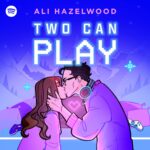
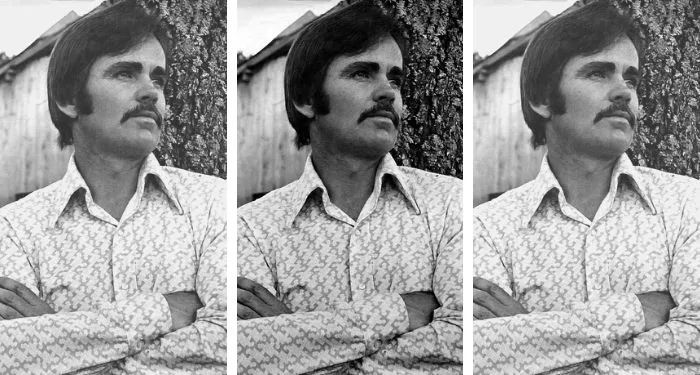


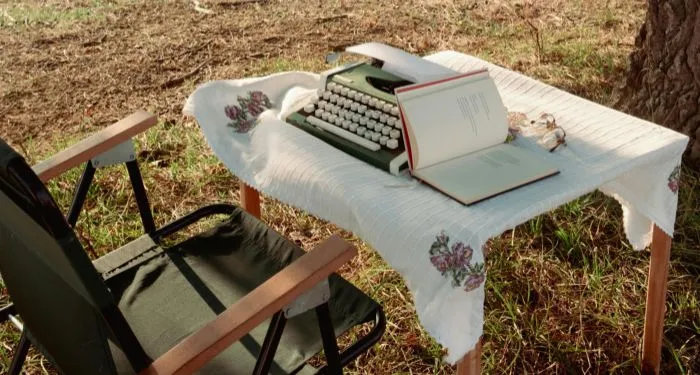
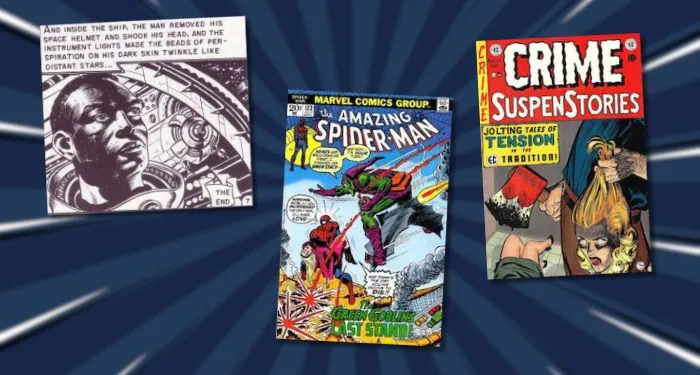
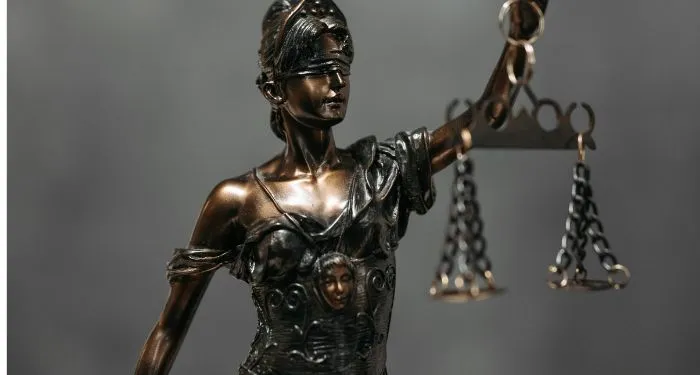

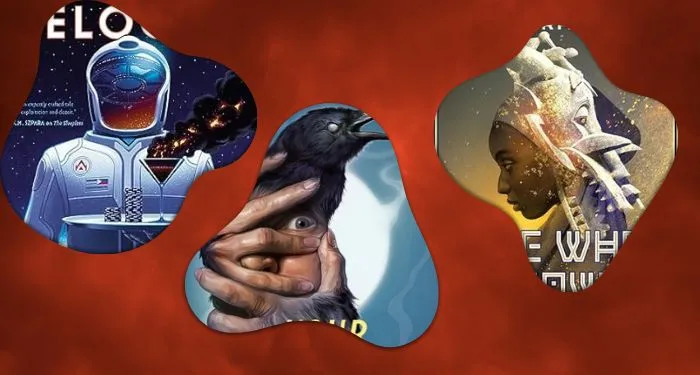
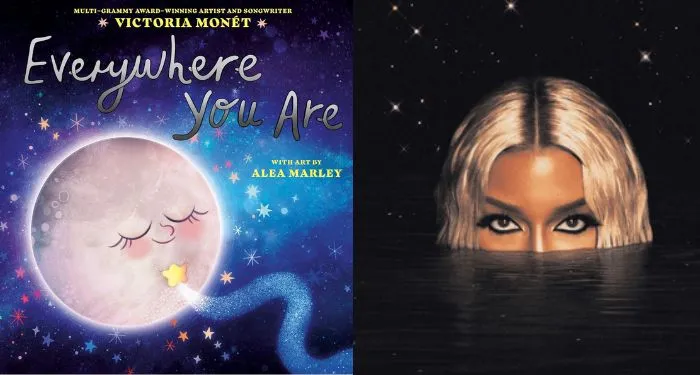
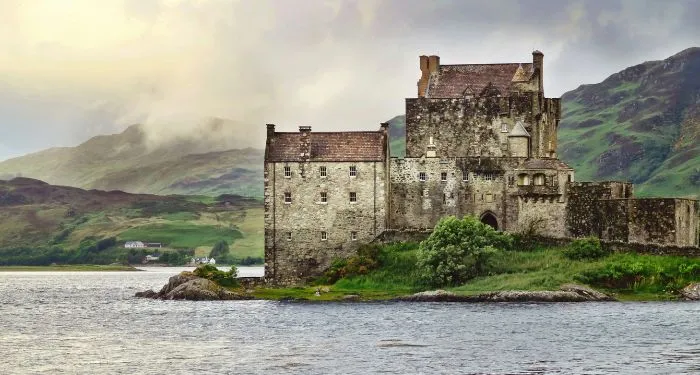

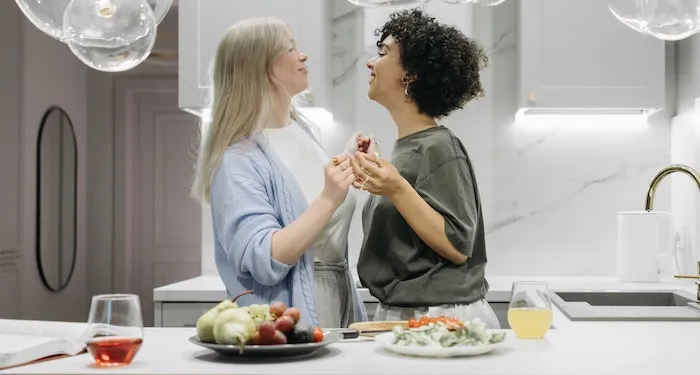

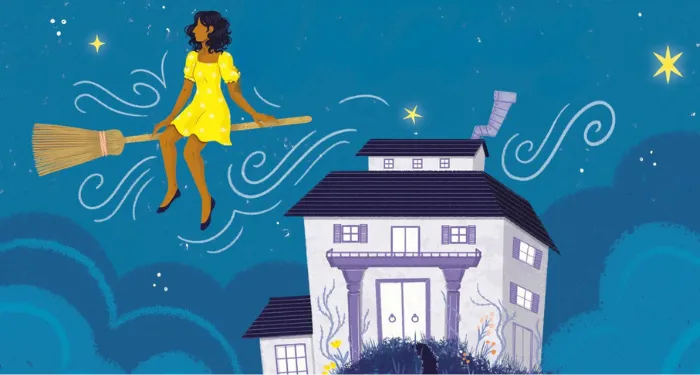



 English (US) ·
English (US) ·